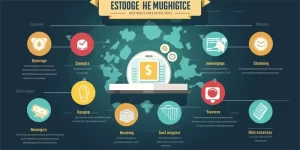William Shakespeare, the greatest playwright in history, has not only left behind a profound literary legacy but has also become a lucrative industry in the modern era. From stage performances to movies, merchandise to tourism, Shakespearean works have been successfully monetized in multiple ways. In this article, we will explore the various aspects of how Shakespeare’s success has been quantified and turned into a thriving business.

The Stage is Set
One of the primary sources of revenue for Shakespeare’s plays is live performances. Theaters around the world, both traditional and contemporary, continue to stage his works. The Royal Shakespeare Company, located in Stratford-upon-Avon, England, attracts thousands of theater-goers each year, contributing significantly to the local economy.
Moreover, many theater companies have successfully adapted Shakespeare’s plays to cater to different audiences, ranging from children’s versions to avant-garde reinterpretations. By presenting his works in diverse formats, theaters have tapped into new markets, expanding the scope of Shakespearean productions.
Beyond the Stage: Film and Television
Shakespeare’s plays have captivated audiences not only on stage but also on the silver screen. Countless film adaptations of his works, from Laurence Olivier’s “Hamlet” to Baz Luhrmann’s “Romeo + Juliet,” have been both critically acclaimed and commercially successful. The allure of Shakespearean dialogue combined with visual storytelling has made his works a favorite among filmmakers.
Additionally, television series like “The Hollow Crown” have also contributed to the monetization of Shakespeare. The BBC production garnered a large viewership, attracting both Shakespeare enthusiasts and those curious about his works.
Books, Books, Books
Shakespeare’s plays have been compiled into numerous editions throughout history, leading to a thriving publishing industry. Shakespeare’s works continue to be republished, analyzed, and interpreted by scholars and authors alike. Numerous collected editions, annotated versions, and critical studies are available to cater to a wide range of readers, ensuring a steady stream of income for publishers.
Moreover, the enduring popularity of Shakespeare has inspired a plethora of spin-off books, from modern retellings to literary criticism. These books contribute not only to the monetization but also the proliferation of Shakespeare’s work in contemporary culture.
Merchandising Madness
Shakespearean merchandise is a booming industry, with everything from t-shirts, mugs, and posters, to figurines, costumes, and replica props. Fans around the world proudly display their affection for the Bard through these collectibles. The reach of Shakespeare’s brand extends far beyond the theater, providing additional revenue streams for producers and artists.
Global Tourism
Shakespeare’s birthplace, Stratford-upon-Avon, has become a popular tourist destination, attracting visitors worldwide. The local economy benefits from Shakespeare-themed attractions, including guided tours of significant sites, such as Anne Hathaway’s Cottage and Shakespeare’s Birthplace, and the renowned Royal Shakespeare Theatre.
Furthermore, international destinations with Shakespearean connections, such as Verona (Romeo and Juliet) and Elsinore (Hamlet), have also capitalized on their association with the Bard to attract tourists seeking a taste of Shakespearean history and romance.
Education and Academia
Shakespeare’s works have been a staple of literature curricula in schools and universities for centuries. Educational institutions continue to purchase textbooks, study guides, and digital resources. Shakespearean scholars, too, contribute to the monetization of the Bard by publishing books, delivering lectures, and organizing conferences.
Moreover, theater workshops and summer schools focused on Shakespeare’s plays provide additional educational opportunities for both students and teachers, generating revenue for educational institutions.
Performing Arts Festivals
Shakespearean festivals, such as the Oregon Shakespeare Festival and Shakespeare in the Park, have become annual cultural events that draw large crowds. These festivals offer performances of various Shakespearean works, attracting both local audiences and tourists. By leveraging the popularity of Shakespeare, these festivals generate significant economic activity for the host cities.
Influence on Popular Culture
Countless modern creations, from songs to advertisements, movies to television series, have been heavily influenced by Shakespeare’s works. His themes, characters, and iconic quotes continuously make their way into popular culture. This integration helps keep Shakespeare relevant and ensures a steady stream of income from licensing and royalties.
Taking Shakespeare Online
The internet has played a pivotal role in ensuring the longevity and monetization of Shakespeare’s works. Websites dedicated to Shakespearean resources, including online editions of his plays and scholarly articles, have attracted millions of visitors. Platforms like the Royal Shakespeare Company’s “The Tempest” game introduce Shakespeare to a younger generation, fostering interest and creating potential customers for future theater productions.
Furthermore, live-streamed performances and on-demand digital platforms, such as the National Theatre’s “National Theatre at Home” initiative, have made Shakespeare readily accessible to global audiences, allowing anyone with an internet connection to experience his works.
Fueling Tourism through Movies
Popular movies based on Shakespeare’s plays have inadvertently led to increased tourism in the locations where they were filmed. Films like “Macbeth” (filmed in Scotland) and “Much Ado About Nothing” (filmed in Tuscany, Italy) showcase picturesque landscapes and historical architecture, enticing Shakespeare fans to visit these destinations.
All in the Name: Licensing and Copyright
Shakespeare’s works are in the public domain, meaning anyone can produce and profit from them without obtaining permission or paying royalties. However, adaptations, musicals, and films based on Shakespearean works often require licensing agreements. Companies specializing in licensing, like the Shakespeare Birthplace Trust, monetize his works through such agreements, adding another revenue stream to the Shakespearean industry.
Conclusion:
William Shakespeare’s success extends far beyond his brilliance as a playwright. The monetization of his works has transformed his legacy into a thriving industry. From stage performances and film adaptations to merchandising and tourism, the ways in which Shakespeare’s works are capitalized upon are numerous and diverse. The enduring popularity and cultural significance of Shakespeare ensure his continued success and financial prosperity for years to come.
Frequently Asked Questions:
1. Was Shakespeare financially successful during his lifetime?
No concrete financial records exist, but Shakespeare was a shareholder in the Lord Chamberlain’s Men, a prominent acting company. It is believed that his involvement in the theater business granted him a comfortable income.
2. How much money do stage actors make by performing Shakespeare’s plays?
Salaries for stage actors vary greatly based on factors such as experience and the production itself. While top-tier actors can earn substantial amounts, the majority earn modest wages.
3. Are there any undiscovered plays by Shakespeare?
No undisputed works have been definitively attributed to Shakespeare since his death. Scholars continue to study and debate the authenticity of certain plays, such as “The Two Noble Kinsmen” and “Edward III.”
4. What is the most performed Shakespeare play?
“Hamlet” is often regarded as the most performed Shakespearean play. Its universal themes and complex characters make it a favorite among actors and directors.
5. How many languages have Shakespeare’s plays been translated into?
Shakespeare’s plays have been translated into over 80 languages, making his works accessible to audiences around the world.
References:
– Shakespeare in the Park: www.shakespeareinthepark.org
– The Royal Shakespeare Company: www.rsc.org.uk
– BBC’s “The Hollow Crown”: www.bbc.co.uk/programmes/p00szzcm








